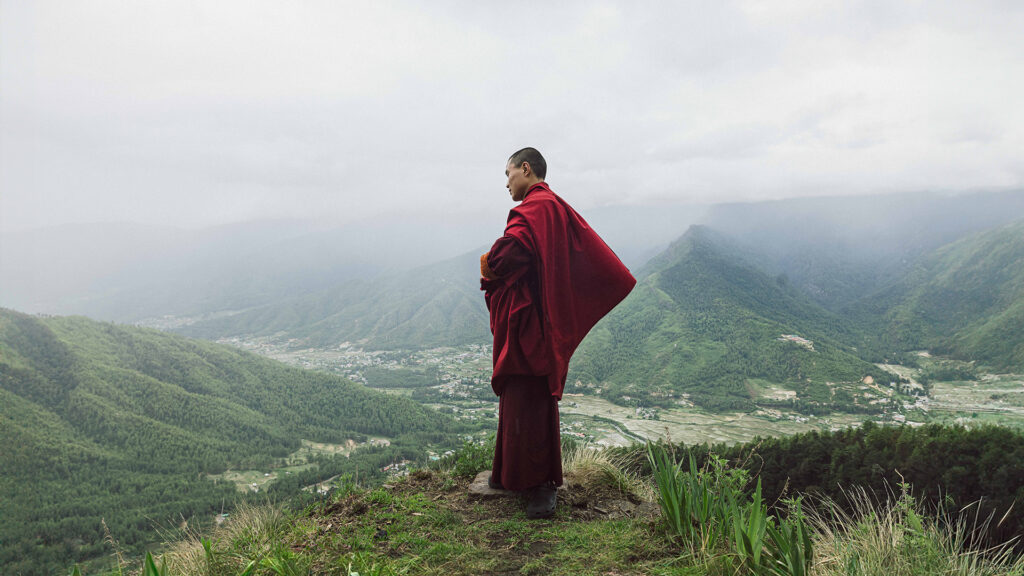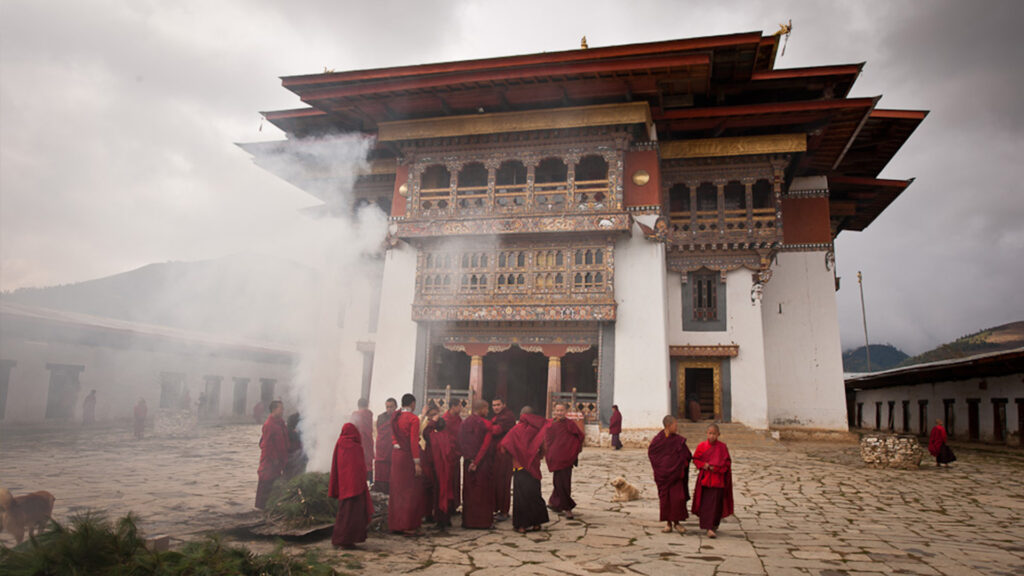Frequently Asked Questions

Why is the Sustainable Development Fee introduced by Bhutan?
Bhutan is a carbon-negative country. With climate change, Bhutan must continue to conserve its environment. Based on our careful calculations, Bhutan believes that the SDF will put the country in good stead to mitigate climate change, and maintain carbon-neutral & sustainable tourism. The SD will be channelled towards activities that offset carbon footprint and support the carbon sinks in Bhutan through replanting trees, reducing the country’s reliance on fossil fuels, for instance, enhancing its hydropower capacity and electrifying its transport sector. Beyond protecting the country’s natural environment, the SD will be directed towards activities that preserve Bhutan’s living cultural heritage, including architecture and traditional values. These include well-managed community-led projects that promote sharing authentic experiences and understanding of Bhutan’s traditions and culture. The SDF will also ensure viable, long-term economic operations which provide socio-economic benefits to all stakeholders. This includes developing tourism activities that help local communities thrive economically and creating stable employment with fair wages and working conditions.
What is the SDF fee and how much is it?
The SDF of US$ 100 per person per night stay applies to all tourists visiting Bhutan; SD is the Government mandated Sustainable Development Fee (Tax). However, there may be incentives and discounts made available for longer duration visits and bigger group bookings. Please inquire for more information at info@yangphel.com or Whatsapp +975 171 113 31
What makes Yangphel Adventure Travel different from rest of the DMCs in Bhutan?
We have been one of the pioneering and leading tour operators in Bhutan since 1988. Our expertise lies in crafting the perfect trips for our valued travelers, catering to diverse interests and preferences. We offer a wide range of experiences tailored to your desires. From immersing in the rich tapestry of cultural and historical landmarks, or traversing the world’s most rugged mountains and trails through our trekking adventures. Indulging in luxury with customized helicopter trips or finding solace in the opulence of world-class resorts. Meeting historical and public figures, contributing to philanthropic endeavors, and engaging deeply with local communities. Venturing into the wilderness, exploring remote temples, and partaking in activities such as birding, fly fishing, rafting, camping, and ultra running. Whether you’re planning MICE events or seeking a tranquil retreat, we cater to both solo and group travels.
Sustainable practices are a critical component in all our operations and above all, we are an incorporated company (Yangphel Adventure Travel Private Limited). With our diverse and deep local knowledge, our team will cater to the kind of adventure and experiences you look forward to in the Kingdom of Bhutan. Your journey, our passion!
When should I make my tour payment?
We need to receive the full payment upon confirmation of your Bhutan trip a minimum of 2 months before the Bhutan arrival date. This will provide enough time to apply and clear your visa formalities with the Department of Immigration (done only after the full payment is received). Also, we must reconfirm with other land arrangements such as hotels, guides, cars, etc. Some luxury hotels & airlines must receive payments three months in advance to confirm the reservations during the peak season months.
What is the best time to visit Bhutan?
Bhutan is a year-round destination. There is something special going on every season depending on what you are looking for. The views of the great Eastern Himalayan peaks during the winter months, to the variety of beautiful flowers and chirping birds during the Spring season, to the lushness (and greeness) of summer and the wonderful festivals & trekking opportunities during the Autumn.
How much doest it cost to visit Bhutan?
The Sustainable Development Fee is US$ 100 per person per night.
How about accommodation? What are the hotels like?
Bhutan now has a host of variety of hotels. You can get standard hotels with all the basic necessities, clean and hygienic. There also a number of luxury hotels offering the best of facilities matching any international 5 star property like Zhiwa Ling Heritage www.zhiwaling.com You can also choose to camp or try out the home stays in villages that are now becoming very popular with guests. Yangphel offers glamping (Deluxe camping services).
What is the weather like?
The weather varies across different parts of Bhutan. Depending on the altitude, the climate varies from semi-tropical to alpine. In Thimphu, the capital city, the temperature ranges from -2.5°C in winter to 25°C in summer. In Southern Bhutan, the climate is tropical in the monsoon season and may range from 15°C in winter to 30°C in summer. The east is also warmer than the west. The centre enjoys sub-tropical climate with very cool winters while the northern parts of the country have harsh climate including snowfall two to three times every winter.
What flights are available and which airports can I depart for Bhutan?
You may depart for Paro International Airport (Bhutan) from Bangkok, Singapore, Kathmandu, New Delhi, Kolkata, Mumbai, Bagdogra or Guwahati airports. At present two carriers operate to Bhutan – Drukair and Bhutan Airlines. We can help secure reservations on either of the airlines. Ticket purchase can also be taken care of by us and sent across to you, as all tickets are e-tickets. Reconfirmation, changes etc can all be routed via our office.
Do I need to use a tour operator to book my travel?
It is a government regulation that you must use a licensed Bhutanese Tour Operator to book your travel to Bhutan.
Do need a visa to enter Bhutan? How hard is it to obtain one?
All International tourists wishing to enter Bhutan require a visa which must be pre-arranged through a licensed Bhutanese Tour Operator or one of their international partners. Visa clearance must be obtained through your tour operator prior to travel. For Indian passport (or VIC) holders, Bangladeshi nationals and visitors from the Maldives may obtain a visa on entry. There is a misconception that obtaining visa to visit Bhutan is very difficult. This is not the case. Visas can be obtained in about three working days, if all papers are in order. All forms and paperwork will be processed by the local tour operator and the following items are the only things required of you, to process visas for Bhutan:
- Passport copy – color scanned copies can be sent via email
- Full payments for the trip with Tourism Council of Bhutan account
What currency is used in Bhutan?
Bhutanese currency is known as the Ngultrum. It’s value is tied to the Indian Rupee which is also accepted as a legal tender. Most tourist hotels and few shops also accept international currencies like US dollar and the Euro and major credit cards i.e., VISA and Master cards are accepted. Major convertible currencies and travelers’ cheques can be exchanged at banks in all major towns. The
Current exchange rate is US$ 1 = Nu. 80
What is the food like in Bhutan?
The most distinctive characteristic of Bhutanese cuisine is its spiciness. Chilis are an essential part of nearly every dish and are considered so important that most Bhutanese people would not enjoy a meal that is not spicy. Rice forms the main body of most Bhutanese meals. It is accompanied by one or two side dishes consisting of meat or vegetables. Pork, beef and chicken are the meats that are eaten most often. A wide selection of Western and Indian food is also available in many of the restaurants around the country. Tourist hotels cater to all continental, Asian, and other cuisines
Question?

